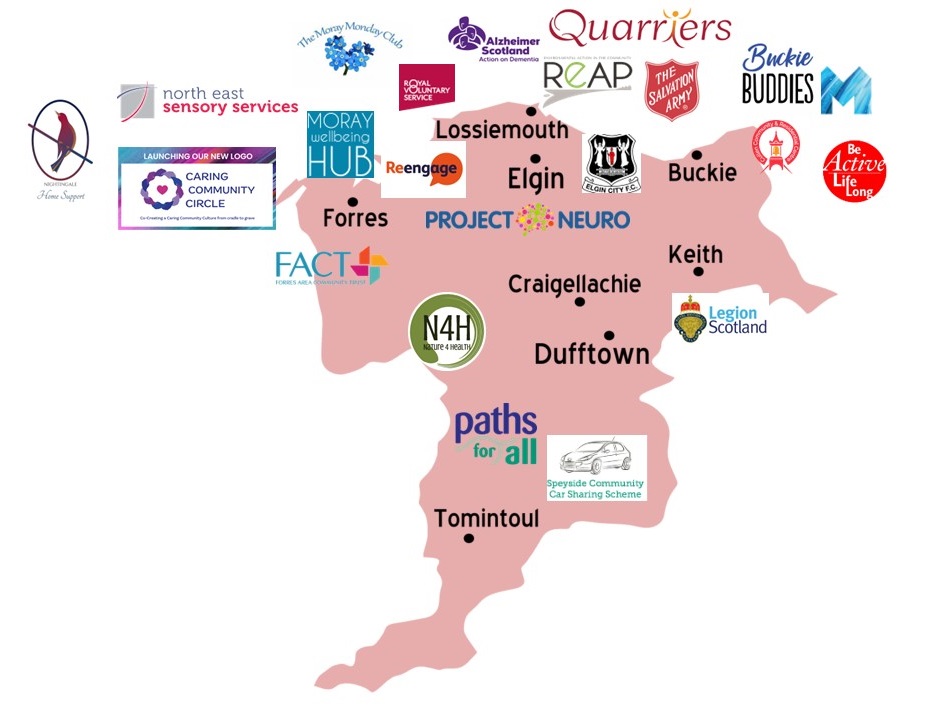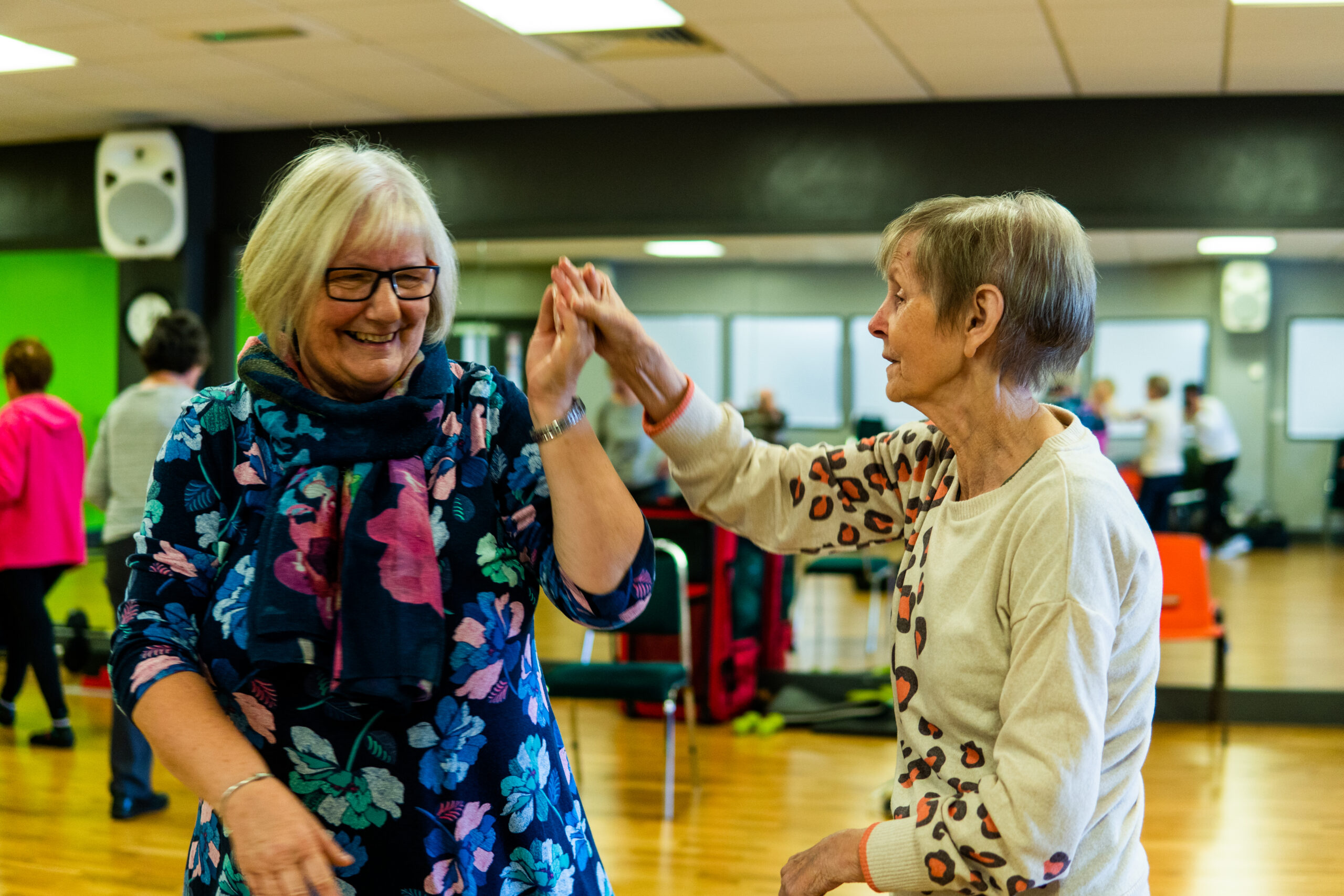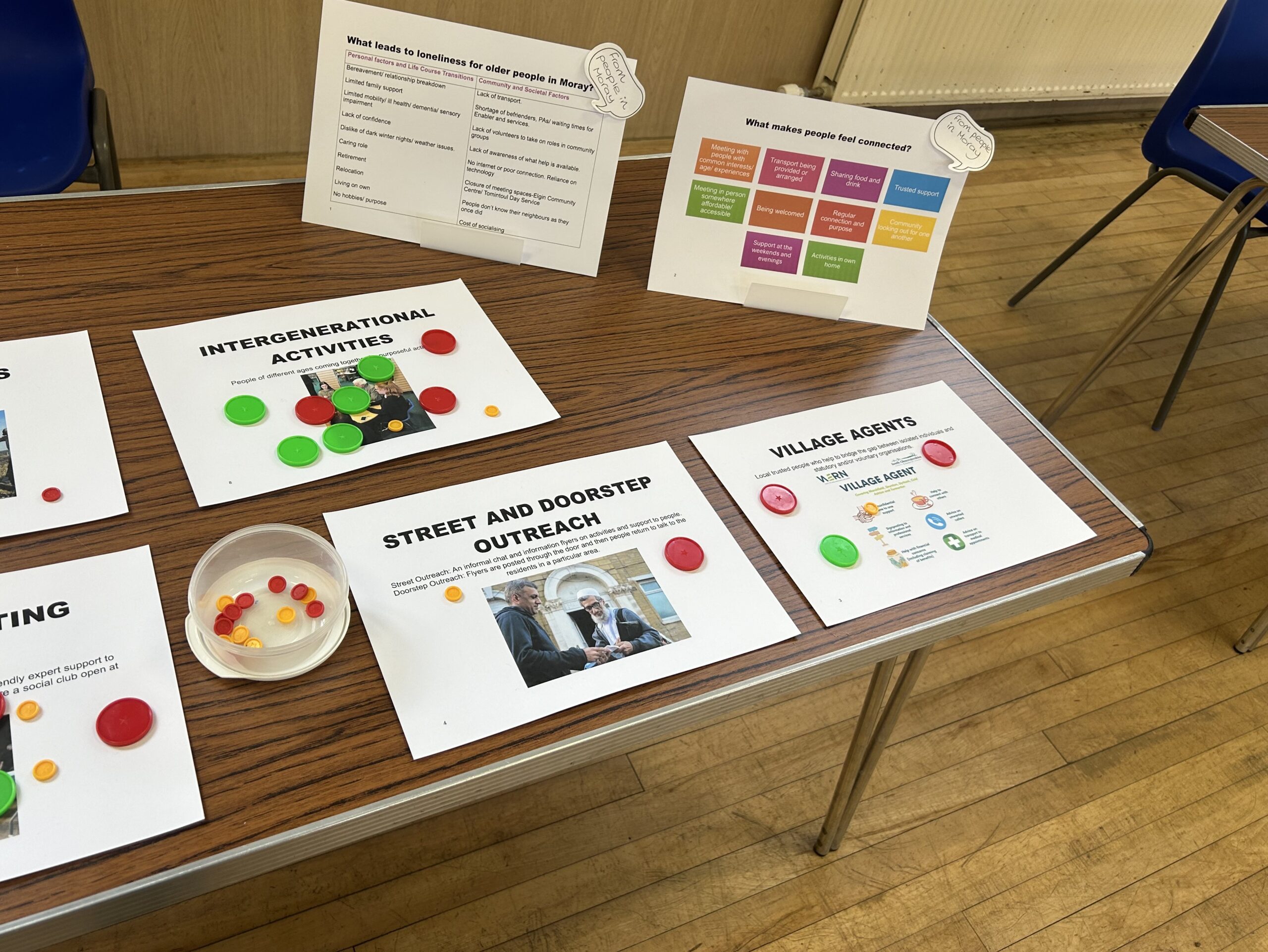Tackling loneliness in rural areas
Project Background
This IMPACT project focuses on tackling loneliness among older people in Moray, Scotland. The project is engaging with older people local to Moray to review the factors that lead to isolation.
In rural areas, loneliness is more common, and therefore this project will help uncover mechanisms to overcome the challenges and re-engage older people within the wider community.
Pre-project Evidence
A lack of definition as to what constitutes ‘older people’, ‘rural’, ‘loneliness’, and ‘social isolation’ has been identified in academic research.
Older People
The United Nations defines older adults as persons over 60 years of age, while in the UK a person over 65 years is considered an older person. The World Health Organisation (WHO) provides global statistics for persons over 60 years, but also states that health and mental capacity changes relating to ‘old age’ “… are neither linear nor consistent, and they are only loosely associated with a person’s age in years.” WHO also points out that the diversity seen in old age is not random, and that beyond biological changes, ageing is often associated with other life transitions such as retirement, relocation to more appropriate housing, and the death of friends and partners.
From speaking to people in Moray, many of those over 65 do not identify themselves as ‘older’ whilst Health and Social Care Moray, with whom the project is based, tend to traditionally consider the over 65 age group but the focus most recently has moved towards need rather than age, as for instance for people with learning disabilities the effects of ageing can be felt sooner.
There is an underlying recognition of the support that an ageing population requires in Moray as 30.2 % of people in Moray are aged 60 and over, in comparison to 24.2% nationally in Scotland. According to the National Records of Scotland, it is predicted that by 2039 the numbers of people over 65 will have increased by 73% in Moray compared to 66% nationally.
Rural Communities
In the UK the Office for National Statistics (ONS) defines an area as ‘urban’ if its population is over 10,000, a minimum area of 200,000 square metres, and settlements within 200 metres of each other being linked. All remaining areas are considered rural with a low population density where economic activity includes farming and forestry.
In Scotland the definition of rural is a settlement with a population of less than 3,000. Although 17% of the population in Scotland is aged >60, they make up 21% of the rural population in several rural local authority areas. In Moray, 42% of the population live in rural areas, with 25% of people in one of the most rural areas, Keith and Speyside, being aged over 65.
Loneliness and Social Isolation
The terms ‘loneliness and social isolation’ are often used as a single concept or viewed as interchangeable. However, researchers have made a distinction between the separate concepts of loneliness and social isolation as findings suggest that each concept may have independent impacts on health and therefore should be viewed as individual. An individual can be socially isolated, but not identify as lonely and another person may be ‘lonely in a crowd’.
Loneliness means different things to different people. For the people of Moray who have been involved in the project so far it means:
- “being stuck in the house”
- “having no one to speak to”
- “some people like being on their own”
- “feeling unconnected to your community”
- “you can be lonely in a group”
- “seeing people socialising but you’re not part of it”
Ageing and Loneliness
A UK Government review to identify gaps in research into loneliness found that previous and current work was based on individual factors that predict loneliness with an absence of research on community level risk factors, or place-based impacts. This is in line with the research we have conducted where there was a lack of research focusing on loneliness in rural areas.
It raises questions around what factors cause transient loneliness to become chronic loneliness. People are living longer with complex conditions and multi-morbidities. Loneliness can occur in any location, urban or rural, and can be caused by losing a partner, divorce, ill health, and/or lack of mobility.
In Moray, some of the reasons for loneliness shared by older people include:
- retirement
- loss of a loved one
- having to stop driving
- mobility issues
- lack of reliable public transport
- reliance on technology
- health and disabilities- eg hearing impairment
- weather and dark nights
- not having family close by
- caring responsibilities
- cost of socialising
There are issues around low numbers of men attending community approaches, lack of engagement and difficulties with recruitment in extremely rural areas as well as wating times, financial constraints and eligibility criteria for formal support.
Mapping Approaches to Loneliness in Moray
The first stage of the project involved mapping the approaches currently available in Moray that aim to reduce loneliness for older people. We undertook mapping via web searches, visiting communities (exploring notice boards and in conversation with local people) and speaking with people involved in delivering services and approaches (local authority, NHS, church and community). Approaches explored included signposting, Health and Social Care Moray services, third sector befriending as well as community approaches.
One approach, Moray Shared Lives (a Health and Social Care Moray service) empowers people to become part of their community with the support of a Shared Lives carer, with whom they are matched with based on mutual interests and choice. The support is based within the Shared Lives carers’ home and community with people being met at their home to begin their day support.
This often involves supporting people to be part of activities run by the local community. One example is the Be Active Life Long (BALL) Groups which can be found across Moray. Whilst initially set up with support from the local authority, the local community are empowered to take ownership and run the group themselves, often involving organising activity, chat, tea and cake.

Next Stages
The next stage of the project focuses on Speyside and Buckie and their surrounding areas allowing for comparison between a rural farming and a coastal fishing community.
Visiting communities and local groups to find out what helps reduce loneliness whilst also exploring approaches in other areas of Scotland, the hope is to bring people together and over a cup of tea co-produce recommendations for service development. There have already been some great discussions and responses:
“I can’t drive up the hill on the farm anymore and I miss it…I’d like to be able to go to church on a Sunday.”
Older person who draws on care and support
“I would be lonely if my carers didn’t come to my house and if my Shared Lives carer didn’t take me out once a week, it’s the only time I go out.”
Person who draws on care and support
“I’d like a wee bit of company on a winter’s night.”
Older person who draws on care and support
“One person I know doesn’t see anyone apart from family. No one is passing and he sees no one day to day. A lot of people slip through the net.”
Person who delivers services
“It takes courage to join a group.”
Community Member
“(In Moray) people could be based here for the military and retire, their children have moved away. It means that community groups are invaluable. Friendships become like family.”
Community Wellbeing Team
“There is no village square in rural areas so it’s hard to get the word out with what is on. You really need to connect with the local people and networks.”
Person who delivers services
Please get in touch with Nicola if you live in either of these communities and would like to be involved: [email protected]
Loneliness Project Reflections
Suggestions for connections!

Each June the Marmalade Trust raises awareness of loneliness and connection during their Loneliness Awareness Week. This year we are being encouraged to pick a ‘Random Act of Connection’ to try, but we have taken it one step further with some “Suggestions for Connections!” During IMPACT’s yearlong Facilitator Project on ‘Older People and Loneliness in…
Reducing Loneliness: Connecting Communities

In March, InKeith and Strathisla and partner, LEAD Scotland (Linking Education and Disability), held the last of a series of coffee mornings in the rural town of Keith, Moray, giving the opportunity for the community to enjoy a bacon roll, cup of tea and a cake whilst chatting with neighbours and discovering the support on…
